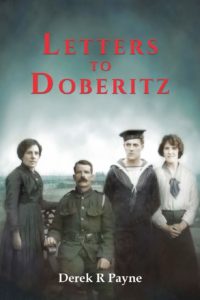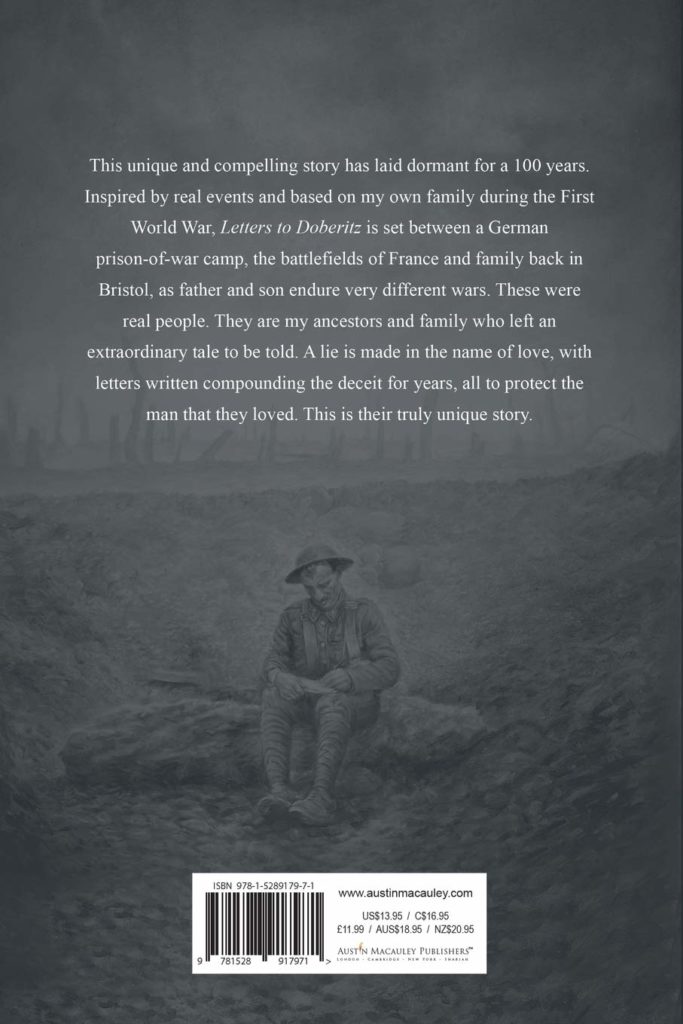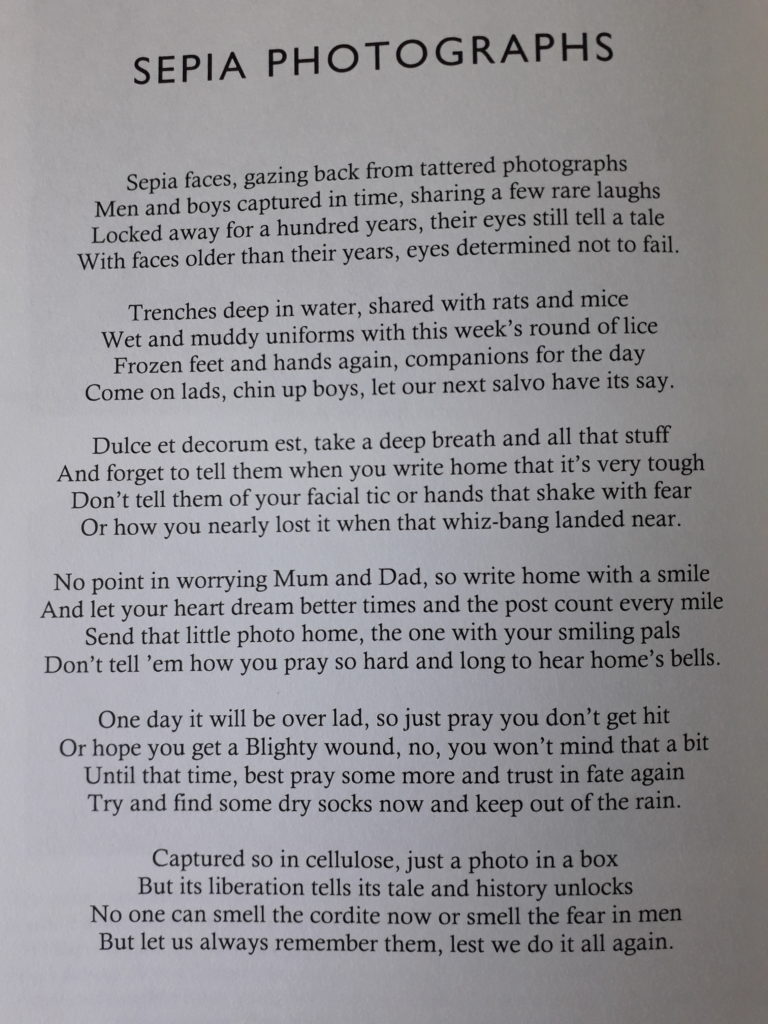No Winners, Only Losers In War
Letters To Doberitz by Derek R Payne is a powerful tale about the experiences of the author’s grandparents and great grandparents during World War I.
The author has captured life at home, on the battlefields and in Doberitz, a prisoner of war camp. He vividly paints the scenes using his words. Horror does not come close to describing it. The trenches and the POW camp were places of sheer horror and terror. Writing letters home, the author’s relatives tried to shield their loved ones from the worst.
I found the description of the train journey to Doberitz particularly harrowing.
Derek R Payne’s grandfather suffered from an unknown neurological condition we would now call PTSD. He was experimented on in the POW camp with the hope of not only curing him, but developing a treatment for German soldiers. It did not work. He returned home with nightmares that would continue to plague him down the years.
War leaves many battle scars, some go deep down. “Will never talked about it [his wartime experiences] for many years.”
We also hear of life in Bristol on the home-front as the women folk are left behind. Their war is of a fear for their menfolk.
Letters To Doberitz must be read to preserve the memories of all those who never returned, and all those who did but left their minds behind on the battlefield.
I found the book lodged close to my heart as my Dad’s father’s cousin (who was brought up more like a brother as there were just 4 years between them), Charles Parkes signed up for the navy in World War I. He too, like Will, was given an inferior rifle and sent to fight on the battlefields of France. Unlike Will, able seaman Charles Parkes perished on the battlefields.
World War I was a travesty of the loss of youth on both sides. There are no winners in war, only grieving families.
I loved the inclusion of photographs, meaning I could put faces to names.
Letters To Doberitz was a powerful yet horrifying read. Thank you Derek R Payne for sharing your grandfather’s story.
I will leave you with a powerful poem from page 68:
“Scattered in a Belgium field,
Is one who died with no choice to yield,
His smile in life would light a room,
Now a field of corn is his tomb.
He gave his life unselfishly,
So that today we can all stand free.”
I received a free copy from the publishers. A favourable review was not required. All opinions are my own.
JULIA WILSON
A poem from the end of the book:



Great review of a compelling account.
Thank you for your kind comments 🙂 Have a great day. X